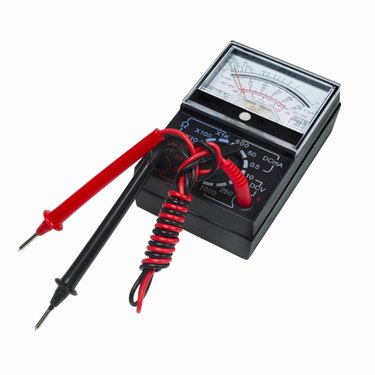
Kohler 25-horsepower engines are used to power lawn vehicles such as Cub Cadet lawn tractors. Additionally, these Kohler engines power up batteries to deliver electricity for the lawn tractors' various functions like blade controls and operating lights. They can't do it, however, if the Kohler engine won't charge the battery.
Battery Cable and Terminals
Video of the Day
Your Kohler engine is connected to the battery via a battery cable and wires to positive and negative terminals. The positive line is typically red, while the negative side is black. The negative charge serves as a ground. If the wires are crossed, a charge will not deliver to the battery. Damaged cables will also cause arcing or fail to deliver a charge. The battery terminals can also become corroded over time, interfering with transmission of voltage to the battery. Clean the terminals and cable connections with a stiff wire brush and baking soda.
Video of the Day
Regulator-Rectifier
The rectifier-regulator on an engine regulates the voltage going from the engine to another source, such as the battery. A failed rectifier-regulator will prevent voltage from reaching the battery. If the rectifier isn't properly grounded, the voltage could arc out before reaching the battery.
Flywheel Magnet
The Kohler 25 HP engine uses a flywheel magnet system to generate electricity. The magnets spin on the flywheel and charge with electricity to deliver voltage. If the magnets are not charged, then there is no electricity to supply to your battery via the regulator-rectifier. Since flywheel magnets are typically attached with glue, inspect the flywheel and ensure the magnets are still there.
Fuses
There are also fuses on the Kohler 25 HP engine. Fuses help regulate voltage travel and protect other engine sections should a part become overloaded. A blown fuse means that there was an overload. If the optional fuse between the regular-rectifier and battery is blown, electricity won't flow to the battery.